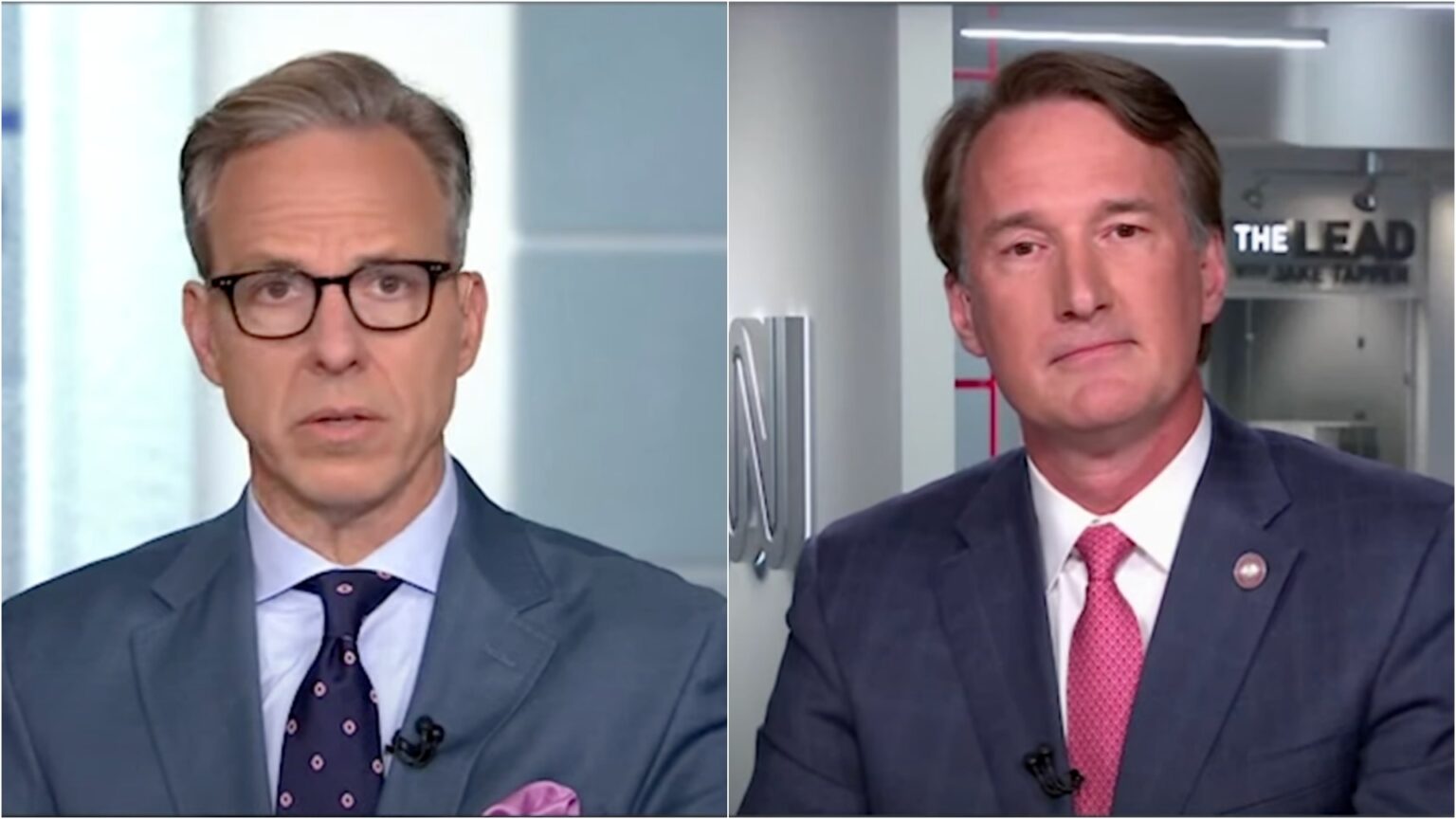During a recent interview with CNN anchor Jake Tapper, Virginia Governor Glenn Youngkin (R) defended his administration’s actions against a lawsuit filed by the Justice Department (DOJ). The DOJ’s lawsuit alleges that Virginia’s efforts to purge non-citizens from its voter rolls violate the National Voter Registration Act (NVRA) of 1993, specifically citing the Quiet Period Provision. This provision mandates that states must refrain from systematic purging of ineligible names from voter rolls within 90 days of federal elections, designed to protect against potential errors that could disenfranchise eligible voters. In light of this lawsuit, Governor Youngkin emphasized that the process for removing non-citizens has been in place in Virginia since 2006 and has undergone scrutiny under both Democratic and Republican governance without issue—until now.
Youngkin articulated the state’s approach, explaining that it relies on data from those individuals who self-identified as non-citizens when applying for state services, such as obtaining a driver’s license. He highlighted that upon identification, the state initiates a notification process giving these individuals 14 days to confirm their citizenship status before removal from the voter rolls. This system, which has been consistent over nearly two decades, is aimed at ensuring that only eligible voters participate in elections. During the discussion, he called out the sudden DOJ scrutiny as politically motivated, questioning why the Justice Department only raised concerns about the law’s implementation shortly before an election.
Tapper probed into the timing of the DOJ’s actions, emphasizing the concern surrounding purges occurring within the 90-day window before elections. Youngkin countered this argument by reiterating that Virginia’s voter removal process has remained unchanged for 18 years and that Democratic governors prior to him had similarly enacted these measures. He noted that over 6,300 potential non-citizens had been identified, stressing that ample time was afforded for them to rectify their status. The governor stood firm, insisting that the enforcement of this process is both constitutional and necessary for safeguarding electoral integrity.
Throughout the exchange, Youngkin maintained that it was crucial for individuals self-identifying as non-citizens, whether by ticking a box or leaving a section of an application blank, to be removed from the rolls to maintain the accuracy of voter lists. While Tapper acknowledged the significance of ensuring that non-citizens do not vote, he raised questions about the implications of mistakenly removing eligible voters, invoking the rationale behind the 90-day rule intended to prevent administrative errors. In response, Youngkin underscored that the current process was not a sweeping purge but rather an individualized method rooted in self-declaration, promising that extensive notifications and follow-ups ensure due diligence.
Youngkin expressed frustration with the Justice Department’s suit, suggesting that the current legal challenge lacked justification given the longstanding nature of Virginia’s voter identification system. He reiterated that citizens’ rights to vote are paramount and that the process must adhere to both state and federal laws. He asserted that this effort was not only compliant but a necessary action to uphold electoral standards and prevent any violation of voter eligibility laws. This point sparked a reminder of the constitutional necessity for transparency in voting processes, as Youngkin reinforced his commitment to maintaining clean elections.
In conclusion, the debate encapsulated broader themes surrounding voter identification and election integrity. Youngkin’s defense centered around the argument that non-citizens, by voluntarily self-identifying as such, should not remain eligible to vote. Although the DOJ’s lawsuit raises questions about the timing and appropriateness of systematic voter list maintenance, Youngkin’s rationale for the state’s approach focuses on both legal compliance and the necessity of ensuring that only eligible citizens partake in elections. As the legal proceedings advance, the dialogue showcases an ongoing national conversation about the balance between upholding voting rights and maintaining the integrity of the electoral system.

